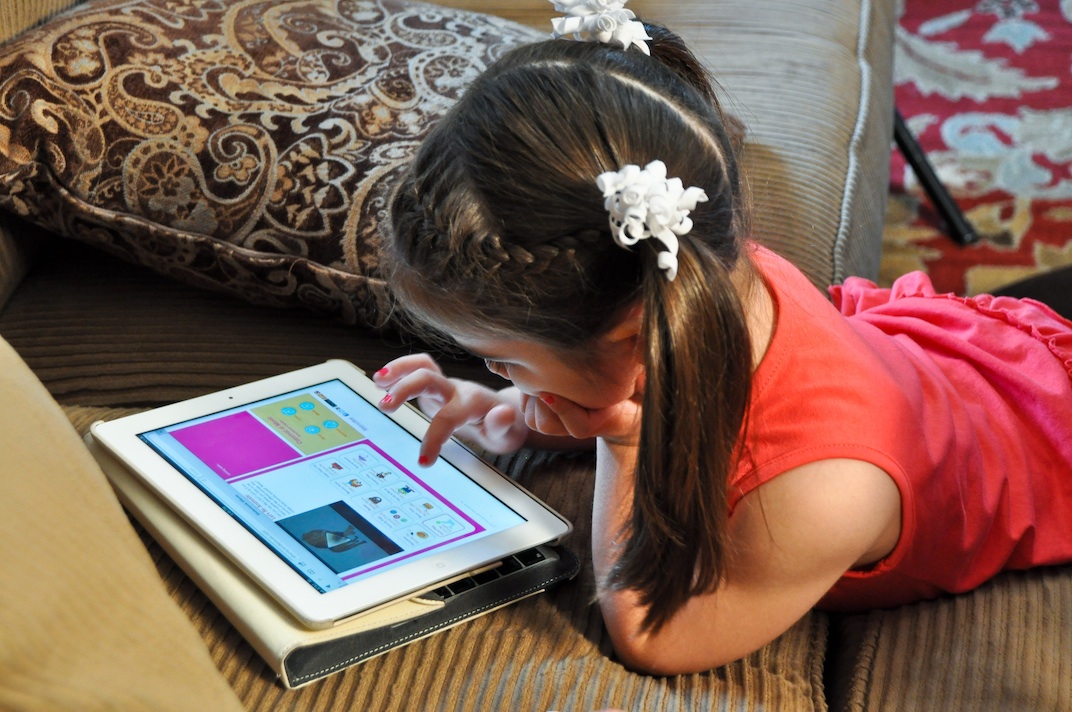 Back in October, Common Sense Media published a report that indicated the usage of mobile apps for kids more than doubled in two years. In fact, the report showed that 75 percent of children under the age of 8 had access to mobile devices at home. However, with the holidays recently behind us, we can make an educated guess that the number of children with access to mobile devices only increased in the few months since the publication of that report.
Back in October, Common Sense Media published a report that indicated the usage of mobile apps for kids more than doubled in two years. In fact, the report showed that 75 percent of children under the age of 8 had access to mobile devices at home. However, with the holidays recently behind us, we can make an educated guess that the number of children with access to mobile devices only increased in the few months since the publication of that report.
Of course, access to mobile devices and mobile apps for kids doesn’t necessarily equate to educational activities for kids. In fact, one of the great parenting challenges of raising digital natives involves finding the right balance of screen time for families, including young children. At Kindermusik, we align our stance with the NAEYC and the Fred Rogers Center for Early Learning, recognizing that children can benefit from a responsible and age-appropriate use of technology in combination with hands-on experiences and in partnership with an actively involved caregiver.
In early childhood, the most effective educational activities for kids involve multi-sensory learning, such as talking (or singing!), interacting, exploring, building, pretending, and manipulating. New research on mobile apps for kids (or those used by kids) sheds some positive insight on how technology can be used as a tool to support language development and teach social skills to young children.
2 educational benefits of mobile apps for kids that use video
Five or 10 years ago, video chat was used primarily for business purposes. Now, families Skype or FaceTime with loved ones all around the world as a means to stay connected. When children—even older babies and toddlers—engage in communicating with loved ones via video chat, they learn social skills and support language development in much the same way as if the conversation happened within the same space.
“We’re finding pretty consistently — in fact, two recent studies with actual Skype [calls] — that children do seem to learn better when there is social interaction from a person on video. So it’s kind of encouraging with FaceTime or Skype for parents and grandparents to know that [with] that interaction, the children might actually be willing to learn from a person on a screen because of the social interaction showing them what’s on the screen is connected to their lives,” Georgene Troseth said in an NPR interview, “What You Need To Know About Babies, Toddlers And Screen Time.”

Other classroom-based research shows that with preschoolers, video modeling can teach children positive social skills, such as sharing, taking turns, or using kind and polite words. One preschool in Minnetonka, Minnesota, uses Flip cameras to record students during their daily rituals and routines. Children can then watch the videos on an Ipad individually or on the SmartBoard as a class to see how to handle certain situations, talk to peers, and even where to go and how to act during circle time.
“Video modeling is just a really easy and effective way to teach children within and without special needs how to do something,” explained Brenna Noland, an early childhood special education teacher, in a news report.
Kindermusik@Home: More than a music app for kids
 Enrollment in Kindermusik includes access to Kindermusik@Home a robust, web-based site that supports active engagement and playtime between a parent and a child while also providing an age-appropriate introduction to digital learning. Each month families receive access to the songs and stories from class, virtual field trips and video modeling, and ideas for taking the learning away from the computer, smart phone, of other device.
Enrollment in Kindermusik includes access to Kindermusik@Home a robust, web-based site that supports active engagement and playtime between a parent and a child while also providing an age-appropriate introduction to digital learning. Each month families receive access to the songs and stories from class, virtual field trips and video modeling, and ideas for taking the learning away from the computer, smart phone, of other device.
For more information about Kindermusik@Home and enrolling in Kindermusik, contact your local educator.

